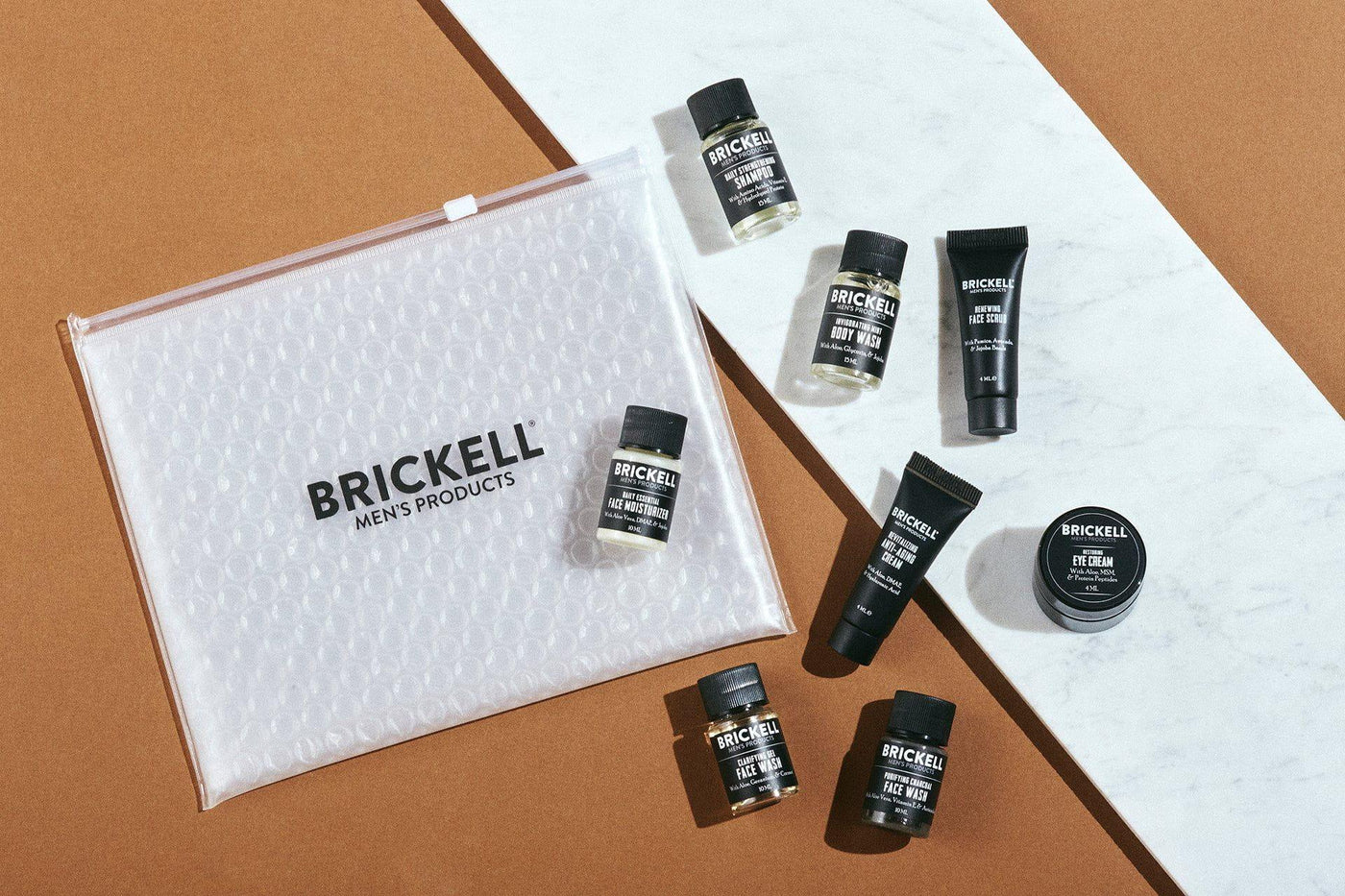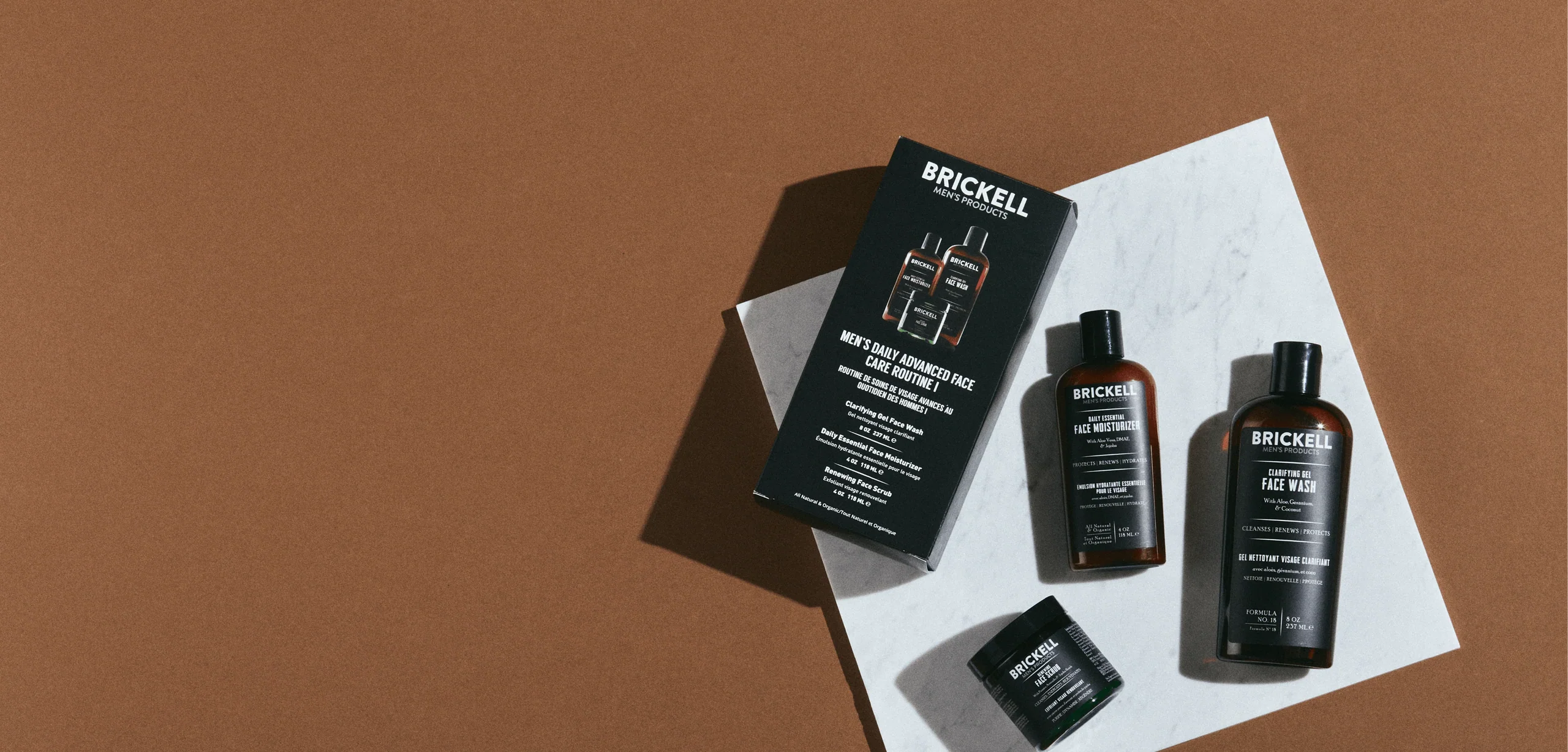The Grooming Manual
Is Dandruff Contagious? (And More Dandruff FAQs)

Dandruff is no fun. While it might not be as serious a problem as other skin and hair conditions, it can have a major negative impact on you. If there are white flakes snowing constantly from your hair, you're probably going to feel self conscious. You might not want to go out, dress differently than you would otherwise, and generally feel less than confident.
We don't want that for you - and we believe that knowledge is power when it comes to skincare and grooming. So we're here with clear, helpful answers to your dandruff FAQ's.
Is Dandruff Contagious?
No, dandruff is not contagious. You can't catch dandruff from a cough, a sneeze, sharing a drink, sharing a towel, or using the same bathroom as someone else.
Dandruff has a few different causes, but none of them are transmittable. For most folks, dandruff is caused by a buildup of Malassezia globosa or pityrosporum orbiculare, two microbes that are found on most people's scalps.
These microbes feed on your scalp's natural oils and their overgrowth is what leads to dandruff flakes. Dandruff is not contagious because most everyone already has the microbes that produce dandruff present in their hair - but in controlled amounts that do not result in overgrowth and dandruff flakes.
Is Dandruff Transmittable?
No, dandruff is not transmittable. If someone else's dandruff flakes get on you, you're not going to catch dandruff (though it might still seem gross). Your partner cannot transmit dandruff to you by sleeping in the same bed or sharing a pillow with you. If you use the same towel as someone else, you won't catch dandruff from them. You can use the same shower as another person without fear of developing dandruff.
Dandruff is not transmittable because it is caused by a reaction between microbes on your scalp and your skin's sebum, or natural oils. Dandruff is not a contagious disease that can be caught or passed from person to person, so no need to worry about that. Focus instead on treating your own hair and scalp to reduce flakes.
Why Do I Have Dandruff All of a Sudden?
If dandruff isn't contagious, why do I have it all of a sudden? Fair question. The tough part is that several different factors can be at work to cause you to have dandruff, itch, and pesky hair flakes. Here are a few of the most common reasons why you might suddenly notice dandruff when you didn't have flakes previously.
Stress
Stress can cause you to have dandruff all of a sudden. A sharp increase in cortisol, the stress hormone, can lead to inflammation and excess oil production on the scalp. This leads to ideal conditions for an overgrowth of the microbes that produce dandruff flakes.
While the issue will likely resolve as your stressful situation calms down, you may need to use a dandruff shampoo to treat the flakes in the meantime. We recommend our Relieving Dandruff Shampoo - it swaps out the harsh ingredients in most dandruff treatments in favor of gentle, natural ingredients.
Environmental Changes
Major weather changes or travel to a place with significantly different humidity levels can cause you to suddenly develop dandruff. Both very dry and very humid conditions are triggers for dandruff, but if you switch from one to the other it is more likely to occur. That's because your scalp and its natural oils are accustomed to one set of conditions - changing them suddenly can throw your scalp's balance of moisture and oils out of whack and lead to dandruff.
Diet
You may have dandruff all of a sudden because of changes in your diet or reactions to specific foods. For example, unhealthy fats, sugars, and other foods known to stimulate inflammation can be behind a fast and unexpected breakout of dandruff.
Does Conditioner Help with Dandruff?
Yes, conditioner helps with dandruff in most cases. Conditioner will not eliminate dandruff that's caused by an overgrowth of fungus by itself. However, using a dandruff shampoo and following up with a soothing conditioner will prevent dryness and irritation - both of which make dandruff worse and can prolong a breakout. Our top picks for dandruff shampoo and conditioner are:
- Relieving Dandruff Shampoo - reduces flakes, relieves itchy scalp, reduces oil, and cleanses hair with gentle, natural ingredients including Ziziphus joazeiro bark extract, jojoba, and aloe vera.
- Revitalizing Hair and Scalp Conditioner - soothes and hydrates the scalp, strengthens hair, and prevents dryness and itch with aloe vera, borage oil, and avocado oil.
Can You Have Shaved Head Dandruff?
Yes, you can have shaved head dandruff. Flakes are possible for bald guys because they are formed by microbes that live on your scalp. The same microbes that consume scalp oil and produce dandruff are present whether you have a shaved head or very long hair.
This means that guys with a shaved head should take the same preventative steps as anyone else to avoid dandruff. Keep your head clean and don't let sweat, dirt, and oil build up. Dryness and irritation caused by shaving your head could make dandruff more likely to develop, so be sure to use soothing, hydrating products when shaving and grooming.
Does Everybody Have Dandruff?
No, everybody does not have dandruff. But yes, everybody has the potential to develop dandruff at some point. Some reports have shown that up to 50% of adults may have or have had dandruff. So while it's extremely common, it's not accurate to say that everybody has dandruff.
Does Hot Water Cause Dandruff?
No, hot water does not directly caused dandruff. However, using extremely hot water in the shower can be a risk factor for developing flakes. That's because hot water dries out your hair and scalp. This can lead to excess oil production - and the microbes that cause dandruff love to feed on your scalp's sebum.
While hot water does not cause dandruff, you can prevent those nasty flakes by turning down the water temperature in the shower. Another smart move is to wash and condition your hair with gentle products made with natural ingredients - like our Relieving Dandruff Shampoo and Revitalizing Hair and Scalp Conditioner.

